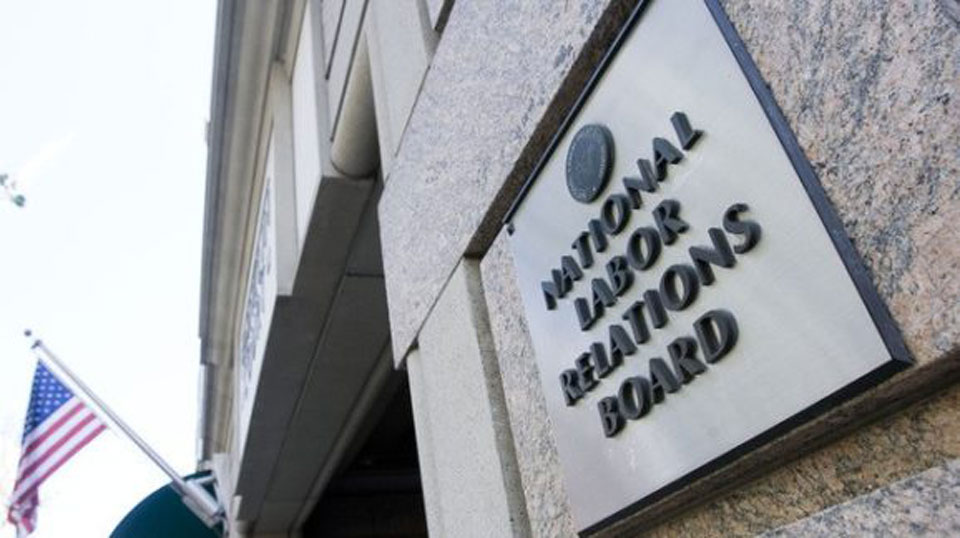NLRB Calls Legality of Nondisparagement and Confidentiality Provisions in Severance Agreements into Doubt
By Jill Kahn Marshall and Bilal Mubarack
Last week, the National Labor Relations Board made headlines when it ruled, in McLaren Macomb, 372 NLRB No. 58 (February 21, 2023), that it was an unlawful labor practice for a hospital to offer a severance agreement to several furloughed workers which contained a broad nondisparagement provision and a provision that the terms of the agreement were confidential. The Board determined that such restrictive covenants, which make receiving severance or other benefits contingent upon signing away rights to speak negatively about a former employer or to disclose the terms of the agreement entered into, run afoul of the National Labor Relations Act’s (NLRA’s) protection of employees’ rights to take collective action against an employer. Under McLaren Macomb, an employer can commit an unfair labor practice by even offering such terms in a separation agreement, on the assumption that the offer will tend to chill employees’ right to cooperate to improve their working conditions. While the ruling marks an important departure from Trump-era precedent, it does not necessarily represent the radical change which some are attributing to it. First, the NLRA does not apply to supervisory employees, and thus, the ruling only comes into play for rank and file employees without such authority. Second, the ruling harkens back to the legal landscape as it stood not too long ago – before a pair of 2020 Trump-era Board rulings. Nondisparagement and confidentiality provisions remained commonplace in severance agreements back then, and may very well survive this ruling as well.
McLaren Macomb reversed the Board’s prior decisions in Baylor University Medical Center, 369 NLRB No. 43 (2020) and IGT d/b/a International Game Technology, 370 NLRB No. 50 (2020). In Baylor, the Board held that there was no violation in the proffer of a severance agreement with problematic “non-participation in claims” and confidentiality provisions because the agreement was not mandatory, signing it was not a condition of continuing employment, the agreement exclusively pertained to post-employment activities, and it had no impact on terms and conditions of employment. IGT reached a similar conclusion with respect to a nondisparagement provision. In McLaren Macomb, the Board reversed these holdings, finding that the mere offer of problematic terms such as an overly broad nondisparagement or confidentiality clause violates the NLRA because “[p]ublic statements by employees about the workplace are central to the exercise of employee rights under the [National Labor Relations] Act.” The Board also held that a confidentiality provision which prevented employees from disclosing the terms of the agreement would “reasonably tend to coerce” employees against disclosing the unlawful practices to the Board and thus was unlawful as well.
While some are hailing this decision as marking a sea change in the use of such commonplace provisions in severance agreements, the ruling might not be as groundbreaking upon closer scrutiny. The Board’s ruling was a return to pre-Trump era precedent, in which severance agreements were scrutinized by the Board on a case-by-case basis to determine whether they violated the NLRA. Many severance agreements therefore already address this issue by including a disclaimer which states that nothing in the agreement precludes the employee from exercising rights under the National Labor Relations Act or filing a complaint with the National Labor Relations Board. Such disclaimers were not present in the agreement at issue in McLaren Macomb, and thus, the Board does not address them. Whether these disclaimers go far enough to satisfy the Board’s distaste for such provisions remains to be seen, but those who are declaring them to now be wholesale invalid are likely getting ahead of the matter. Instead, the holding of McLaren Macomb appears to have a narrower impact for now – that the mere offer of a severance agreement with impermissible clauses and without any disclaimer, on its own, can violate the NLRA – the employee does not even need to sign the agreement.
The takeaway from McLaren Macomb is therefore less about invalidating all nondisparagement clauses and more about watching this space. This case is likely to be appealed by the employer, and the Board may issue additional guidance on this ruling. Like many areas in employment law, the customs around what is acceptable are changing rapidly, with more pressure to limit post-employment restrictions on employees, such as noncompetes, nondisclosure, and nondisparagement agreements. Employers and employees should follow these developments so that they know their rights and boundaries when entering into a separation agreement.
 This articleis intended as a general discussion of these issues only and is not to be considered legal advice or relied upon. For more information, please contact RPJ Partner Jill Kahn Marshall, who counsels individuals and corporations in the areas of employment law, litigation and dispute resolution, and healthcare. Ms. Marshall is admitted to practice law in New York and Massachusetts, as well as the District Courts for Massachusetts and the Southern and Eastern Districts of New York.
This articleis intended as a general discussion of these issues only and is not to be considered legal advice or relied upon. For more information, please contact RPJ Partner Jill Kahn Marshall, who counsels individuals and corporations in the areas of employment law, litigation and dispute resolution, and healthcare. Ms. Marshall is admitted to practice law in New York and Massachusetts, as well as the District Courts for Massachusetts and the Southern and Eastern Districts of New York.

